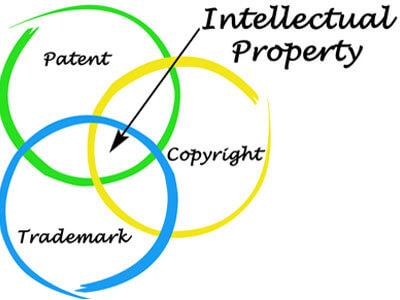In the rapidly evolving landscape of the 21st century, intellectual property (IP) has emerged as a cornerstone of both personal and corporate wealth. As the digital age continues to redefine traditional asset categories, the strategic management and transfer of intellectual property in estate planning has become a critical consideration for individuals and businesses alike. This article delves into the complexities of passing down intellectual property, offering a comprehensive analysis of the legal, financial, and strategic dimensions involved. By understanding the nuances of IP estate planning, stakeholders can ensure that these intangible assets are preserved and leveraged for future generations, safeguarding both legacy and innovation. With a confident exploration of best practices and potential pitfalls, this guide equips readers with the knowledge needed to navigate the intricate process of IP transfer, ensuring that intellectual capital is seamlessly integrated into the broader framework of estate management.
Identifying and Valuing Intellectual Property Assets in Your Estate
In the realm of estate planning, recognizing and valuing intellectual property (IP) assets can be a pivotal step in ensuring their seamless transfer and continued legacy. Intellectual property encompasses creations of the mind, such as inventions, literary and artistic works, designs, symbols, names, and images used in commerce. To effectively identify these assets, one should conduct a thorough inventory of all IP holdings. Consider these categories:
- Patents: Protects inventions and processes, granting the holder exclusive rights to use, make, or sell the invention for a certain period.
- Trademarks: Identifies and distinguishes the source of goods or services, providing brand protection.
- Copyrights: Covers original works of authorship, such as books, music, and films, ensuring control over reproduction and distribution.
- Trade Secrets: Includes formulas, practices, designs, or processes that offer a competitive advantage and are protected from disclosure.
Valuing these assets involves a detailed analysis of their market potential, legal standing, and future income streams. Engage with IP valuation experts to assess their worth accurately, considering factors like market demand, existing licensing agreements, and historical revenue generation. Properly valuing and categorizing these assets not only aids in equitable distribution but also maximizes the financial benefit to heirs, ensuring that your intellectual legacy is both preserved and capitalized upon.

Strategic Legal Frameworks for Transferring Intellectual Property
To ensure a seamless transfer of intellectual property (IP) during estate planning, it is crucial to establish a robust and strategic legal framework. These frameworks act as a roadmap, guiding the distribution of IP assets while safeguarding the interests of both the estate and its beneficiaries. Key elements of an effective legal strategy include:
- Comprehensive IP Valuation: Accurately assessing the value of intellectual property is essential. This involves analyzing market trends, potential future earnings, and the competitive landscape to ensure fair and informed distribution.
- Customized Legal Instruments: Employing tailored legal tools such as trusts, wills, and licensing agreements can provide clarity and flexibility in the transfer process. These instruments can help minimize disputes and protect the integrity of the IP.
- Tax Considerations: Strategic tax planning can significantly impact the value retained by heirs. Understanding tax implications and utilizing available deductions and credits can optimize the transfer process.
- Regular Review and Updates: As laws and market conditions evolve, periodic reviews of the IP transfer plan ensure its continued relevance and effectiveness.
By adopting a proactive approach and leveraging these strategic frameworks, estate planners can facilitate a smooth transition of intellectual property, preserving its value and legacy for future generations.

Tax Implications and Financial Considerations in Intellectual Property Inheritance
Navigating the complexities of intellectual property inheritance demands a keen understanding of tax implications and financial considerations. Intellectual property, unlike physical assets, can appreciate over time, often complicating the valuation process. This appreciation can have significant tax consequences, especially when the property is transferred to heirs. It’s crucial to understand that different types of intellectual property—such as copyrights, patents, and trademarks—may be subject to varying tax treatments. For instance, the sale or licensing of these assets may trigger capital gains tax, while ongoing royalties could be taxed as ordinary income. Properly evaluating these factors can aid in crafting an estate plan that minimizes tax liabilities.
When planning for the transfer of intellectual property, consider the following financial strategies to optimize the process:
- Utilize Trusts: Establishing a trust can offer a structured method to manage and distribute intellectual property, potentially reducing estate taxes.
- Valuation Assessment: Engage with a professional appraiser to accurately determine the value of intellectual property, which is critical for both tax reporting and equitable distribution among heirs.
- Licensing Agreements: Consider licensing the intellectual property during your lifetime, providing a stream of income and potentially reducing estate tax burdens.
By understanding these financial intricacies, individuals can ensure their intellectual property is passed down effectively, safeguarding both the legacy and the financial interests of their beneficiaries.

Choosing the Right Executors and Trustees for Intellectual Property Management
When considering the management of intellectual property within your estate, it is crucial to appoint executors and trustees who possess both the legal acumen and industry-specific knowledge necessary to handle these assets effectively. Unlike traditional estate assets, intellectual property can include copyrights, patents, and trademarks, each requiring specialized understanding. Hence, the selected individuals or entities should not only be trustworthy but also equipped with the expertise to maximize the value of these assets for your beneficiaries.
- Legal Expertise: Opt for individuals who have a background in intellectual property law or have access to a team of legal professionals.
- Industry Knowledge: Choose those who understand the nuances of your specific industry, as this insight is invaluable for making informed decisions.
- Business Acumen: Executors should have the ability to strategically manage and potentially commercialize your intellectual property.
By carefully selecting executors and trustees with these attributes, you ensure that your intellectual property is not only preserved but also leveraged to its fullest potential, providing ongoing benefits for your heirs.



